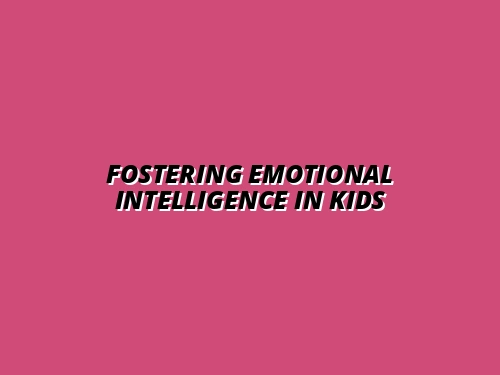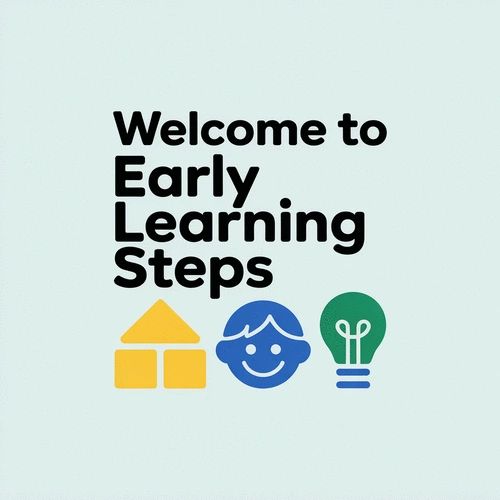As we explore the vital role of emotional intelligence in early childhood, consider this: children equipped with strong emotional skills not only perform better academically but also navigate social dynamics with ease. How can we ensure every child has this essential tool in their developmental toolkit?
What You Will Learn
- Emotional intelligence lays the foundation for effective communication and empathy in children.
- Prioritizing emotional intelligence fosters a supportive learning environment and enhances social interactions.
- Understanding the connection between emotional intelligence and developmental milestones can aid tailored teaching approaches.
- Children with high emotional intelligence are more resilient, achieving better academic results and forming lasting friendships.
- Teaching coping strategies and modeling resilience equips children to handle life's challenges effectively.
- Fostering emotional intelligence contributes significantly to children's mental health and overall well-being.
- Ongoing learning and community engagement are essential for continuous development in emotional intelligence.
Understanding and Nurturing Emotional Intelligence
Emotional intelligence plays a crucial role in child development, impacting academic success, resilience, and mental health. This visual highlights key aspects and benefits.
Role in Child Development
- Improves communication skills
- Enhances problem-solving
- Builds resilience against stress
Foundation for healthy relationships.
Why Prioritize Emotional Intelligence?
- Fosters supportive learning
- Encourages open dialogue
- Promotes teamwork
Cultivates academically and socially adept children.
Long-Term Benefits
- Improved academic success
- Stronger relationships
- Enhanced mental well-being
Lifelong advantages for individuals & communities.
Action Steps & Resources
- Utilize books & online courses
- Participate in workshops
- Encourage open discussions
Continuous learning journey for parents & educators.
Nurturing Emotional Intelligence: Understanding Its Importance in Early Childhood
Emotional intelligence is like the secret ingredient in a child’s recipe for success. It encompasses the ability to understand, manage, and express emotions effectively. As a passionate educator and advocate for early childhood development, I’ve seen firsthand how nurturing emotional intelligence can profoundly impact a child's growth and learning journey. Let’s delve into why it’s essential and how we can cultivate this vital skill in our young learners!
The Role of Emotional Intelligence in Child Development
Emotional intelligence plays a crucial role in helping children navigate their feelings and build healthy relationships. It helps them understand their emotions and the emotions of others, laying the foundation for effective communication and empathy. Research shows that children with high emotional intelligence often perform better academically, are more resilient, and have healthier social interactions. This understanding is further supported by studies from sources like the Child & Youth Encyclopedia, which highlight the importance of emotional intelligence in the first five years of life.
- Improves communication skills
- Enhances problem-solving abilities
- Builds resilience against stress
By fostering emotional intelligence, we equip children with the tools they need to face challenges and adapt to new situations. This understanding not only shapes their behavior but also influences their overall development.
Why Parents and Educators Should Prioritize Emotional Intelligence
As both parents and educators, we share the responsibility of nurturing emotionally intelligent children. Prioritizing emotional intelligence is essential because it helps children express their feelings and navigate social dynamics. They learn to recognize their own emotions and those of their peers, leading to deeper connections and understanding. Evidence from publications by the Yale Center for Emotional Intelligence emphasizes the benefit of integrating emotional intelligence into educational frameworks.
- Fosters a supportive learning environment
- Encourages open dialogue about feelings
- Promotes collaboration and teamwork
When we emphasize emotional intelligence, we cultivate a generation of learners who are not only academically proficient but also socially adept. This balanced approach to education can lead to happier, more engaged children who thrive both in and out of the classroom.
Connecting Emotional Intelligence with Child Psychology and Developmental Milestones
Understanding the link between emotional intelligence, child psychology, and developmental milestones is key to supporting our children’s growth. Emotional intelligence can significantly affect how children reach their developmental goals, such as learning to share or manage frustration. By recognizing these connections, we can tailor our teaching methods to align with their emotional and psychological needs. A study published in PMC NCBI further explores the relationship between emotional intelligence and child development, providing valuable insights for educators.
- Encourages healthy emotional expression
- Supports social skill development
- Facilitates conflict resolution
As we explore these connections, we can create targeted strategies that empower children in their emotional development journey. At Early Learning Steps, we’re committed to providing resources and insights that support this essential aspect of child development!
Relevant Quote
"Emotional intelligence is the key to both personal and professional success. It shapes our interactions, influences our decisions, and ultimately determines the quality of our relationships." - Unknown
Frequently Asked Questions About Emotional Intelligence in Early Childhood
What is emotional intelligence in early childhood?
Emotional intelligence in early childhood refers to a child's ability to understand, manage, and express their own emotions effectively, as well as to recognize and respond to the emotions of others. It includes skills like empathy, self-regulation, and effective communication.
Why is emotional intelligence important for young children?
Emotional intelligence is crucial for young children because it positively impacts their academic success, resilience, mental health, and social interactions. It helps them build healthy relationships, solve problems, and adapt to new situations, laying a strong foundation for future well-being.
How can parents and educators foster emotional intelligence?
Parents and educators can foster emotional intelligence by creating supportive learning environments, encouraging open dialogue about feelings, modeling emotional regulation, teaching coping strategies, and providing resources like books and workshops. Promoting teamwork and collaboration also helps.
What are the long-term benefits of high emotional intelligence?
Children with high emotional intelligence are more likely to achieve better academic results, form stronger and more lasting relationships, and experience enhanced mental well-being. They develop resilience, enabling them to navigate life's challenges more effectively and view obstacles as opportunities for growth.
How does emotional intelligence relate to mental health?
There is a significant link between emotional intelligence and mental health. Children who can understand and communicate their emotions effectively are less prone to anxiety and depression. Fostering emotional intelligence provides healthier coping mechanisms, reduces feelings of isolation, and helps prevent aggressive behaviors, contributing to overall mental well-being.
Emphasizing the Long-Term Benefits of Emotional Intelligence
Understanding the long-term benefits of emotional intelligence is crucial for both parents and educators. Children who develop emotional intelligence early on are more likely to succeed academically and build healthy relationships in the future. This isn't just a theory; numerous studies highlight how emotional awareness and management contribute to a child's overall success.
When children learn to manage their emotions and understand the feelings of others, they create a solid foundation for interpersonal skills. As a passionate advocate for early childhood development, I’ve witnessed firsthand how children equipped with these skills navigate challenges with greater ease. Isn’t it rewarding to think about the positive impacts we can have on their futures?
Impact on Academic Success and Future Relationships
Emotional intelligence plays a vital role in children's academic success and their ability to form lasting friendships. Research shows that children with high emotional intelligence tend to achieve better grades and display enhanced social skills. They can manage stress and respond to challenges effectively, leading to more positive interactions with peers and teachers.
- Improved communication skills facilitate academic group work.
- Stronger relationships with peers enhance team collaboration.
- Better emotional regulation leads to decreased behavioral issues in class.
By focusing on emotional intelligence, we equip children not only for their school years but also for their future relationships. Imagine how these skills translate into adulthood, helping them to forge strong personal and professional connections!
Fostering Emotional Resilience for Lifelong Well-Being
Building emotional resilience in children is about helping them bounce back from setbacks. This skill is foundational for lifelong well-being. When children face challenges, those with emotional intelligence are more likely to view obstacles as opportunities for growth instead of insurmountable problems.
- Encouraging a growth mindset helps children embrace challenges.
- Teaching coping strategies provides tools to handle adversity.
- Modeling resilience shows children how to approach their own struggles.
As a community, we can instill these values in our children, ensuring they are equipped to handle life's ups and downs. What a gift it is to give them the tools to face life's challenges with grace!
The Connection Between Emotional Intelligence and Mental Health
There’s a significant link between emotional intelligence and mental health. Children who understand their emotions and can communicate them effectively are less likely to experience anxiety and depression. By fostering emotional intelligence, we contribute to a healthier, happier generation. Isn’t that something we all strive for?
- Awareness of emotions leads to healthier coping mechanisms.
- Empathy can reduce feelings of isolation and loneliness.
- Emotional regulation helps prevent aggressive behaviors.
Encouraging emotional intelligence not only supports academic and social success but also cultivates mental well-being. The positive ripple effects of this focus can last a lifetime, benefiting individuals and communities alike!
Encouraging Ongoing Learning and Application
To fully reap the benefits of emotional intelligence, we must commit to ongoing learning and application. This journey doesn’t end after the initial introduction; it’s an evolving process that requires support and resources.
Resources for Continued Development in Emotional Intelligence
There are numerous resources available for parents and educators looking to enhance their emotional intelligence toolkit. From books to online courses, I encourage you to explore materials that resonate with your approach.
- Books like “Emotional Intelligence 2.0” offer actionable insights.
- Online courses can provide structured learning opportunities.
- Webinars and podcasts are great for on-the-go learning.
By tapping into these resources, we can stay informed and continue to grow alongside our children. The journey of learning never truly ends!
Inviting Parents and Educators to Participate in Workshops and Community Programs
Participating in workshops and community programs is a fantastic way to strengthen emotional intelligence skills. At Early Learning Steps, we often host events focused on emotional literacy, where families and educators can come together to learn and share experiences.
These collaborative environments foster a sense of community and provide practical strategies that can be implemented immediately. Have you ever considered joining a local group? The connections made through shared learning experiences can be invaluable!
Professional Development Opportunities for Educators in Emotional Intelligence
For educators, professional development opportunities focusing on emotional intelligence are essential. Investing in training not only benefits the educators but also enhances the learning environment for children.
- Workshops can introduce innovative teaching methods.
- Networking with peers provides support and new ideas.
- Ongoing training keeps educators updated on best practices.
By prioritizing professional growth in emotional intelligence, educators can create more effective, empathetic classrooms that inspire students to thrive.
Summary of Key Takeaways and Action Steps
As we summarize the importance of emotional intelligence, it’s clear that implementing strategies at home and in the classroom is vital. Understanding the long-term benefits empowers us to prioritize emotional development in the lives of our children.
Implementing Strategies at Home and in the Classroom
Consider integrating simple practices into your daily routines. Whether it's naming feelings during family discussions or encouraging empathy through storytelling, every step counts. Together, we can create a nurturing environment that fosters emotional growth!
- Encourage open discussions about feelings.
- Incorporate play-based learning to enhance emotional literacy.
- Model emotional regulation in everyday situations.
We all have the power to make a difference in our children's lives. Let's take action!
Continuing the Conversation About Emotional Intelligence
Finally, let’s continue the conversation about emotional intelligence. It is essential to keep discussing these concepts with each other, whether in casual conversations or community forums. Sharing insights and strategies not only reinforces our learning but also strengthens our support systems.
By prioritizing emotional intelligence, we are not just shaping individual children; we are cultivating a community of empowered, empathetic learners who can navigate the world with confidence. Thank you for being part of this journey with Early Learning Steps!
Recap of Key Points
Here is a quick recap of the important points discussed in the article:
- Emotional intelligence is essential for children's academic success and social interactions.
- Prioritizing emotional intelligence fosters a supportive learning environment and encourages open discussions about feelings.
- Teaching emotional regulation helps children manage stress and navigate relationships effectively.
- Incorporating play-based learning enhances emotional literacy and problem-solving skills.
- Ongoing learning and resources are crucial for parents and educators to nurture emotional intelligence.








